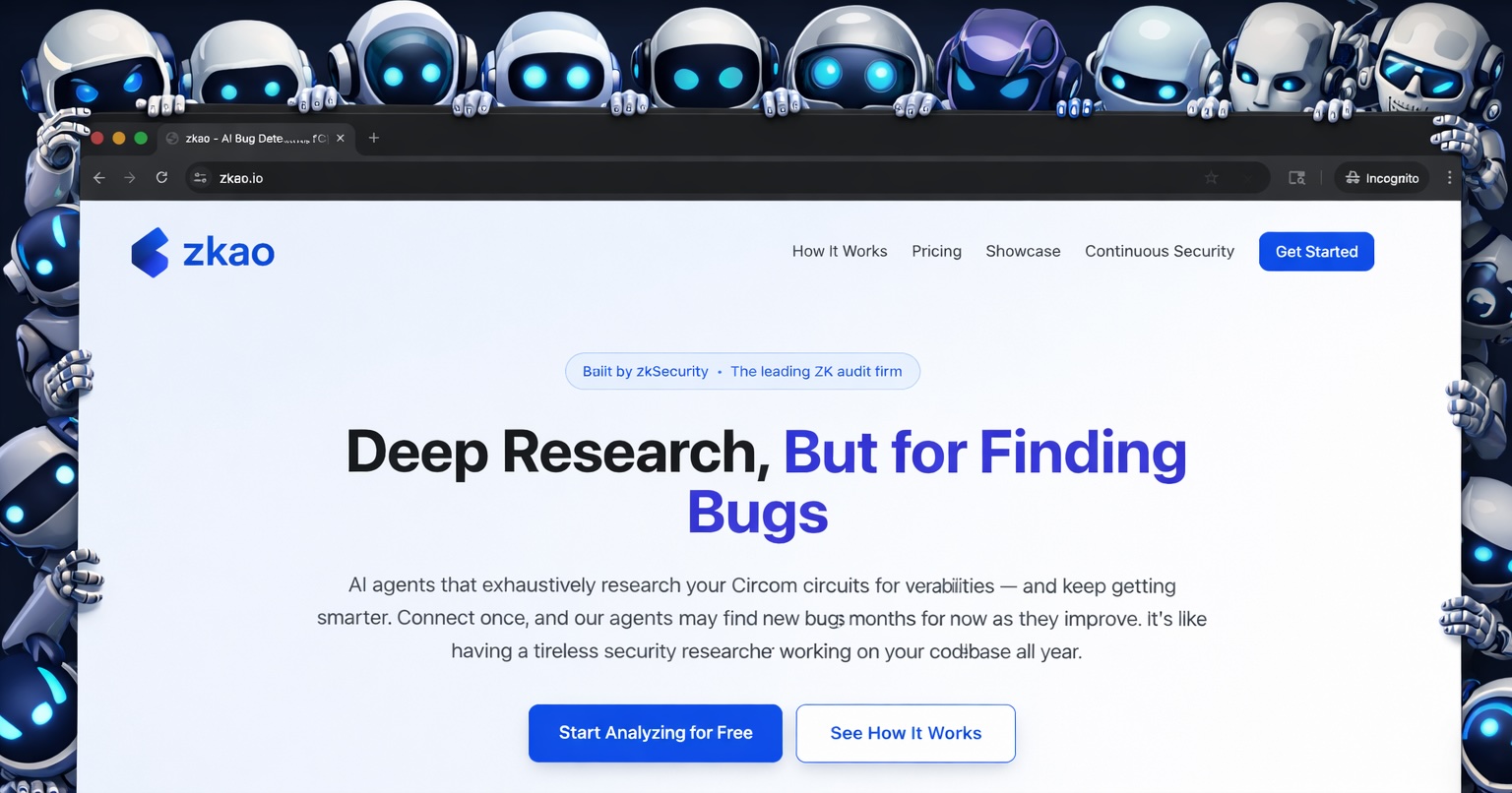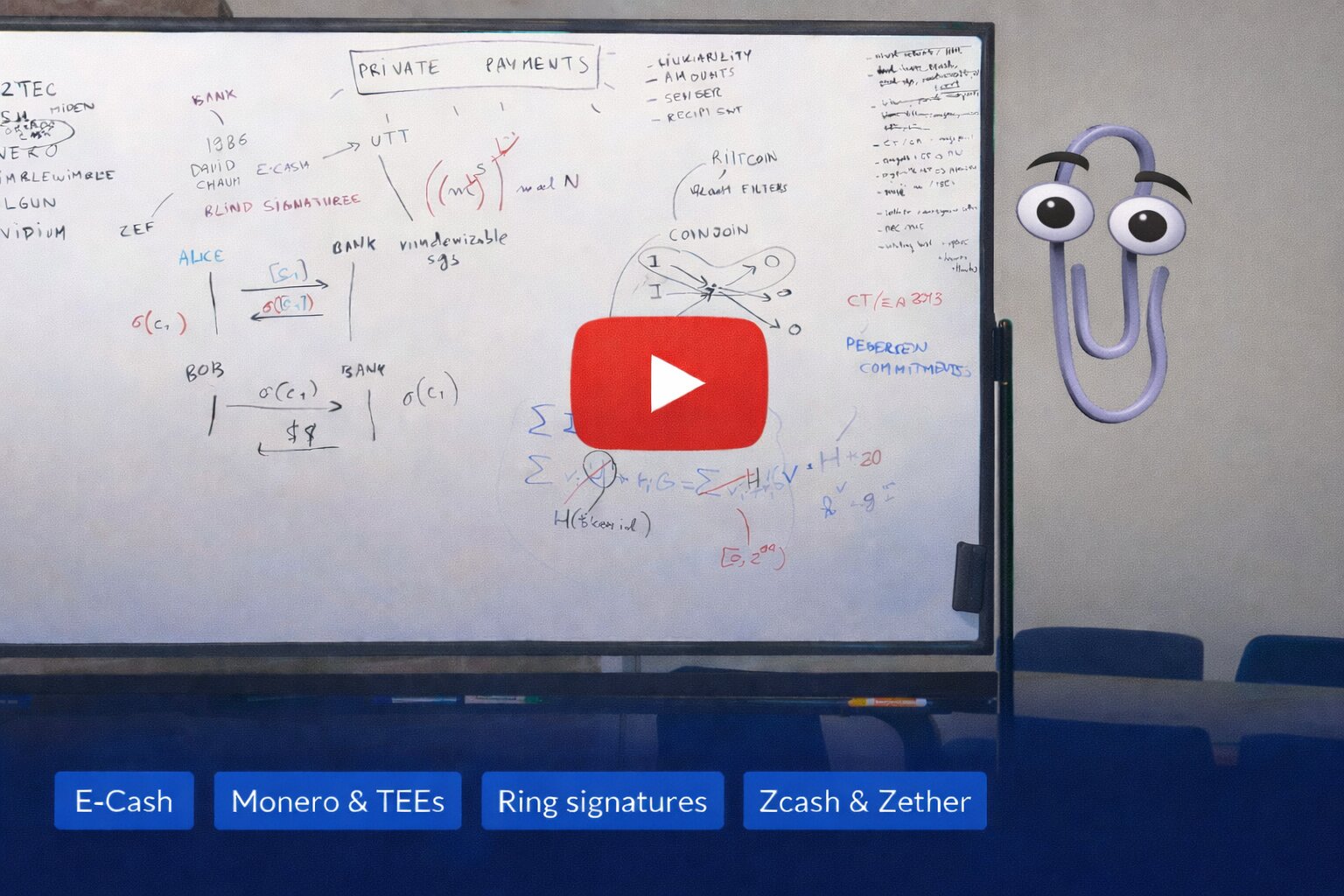Featured

Stefanos Chaliasos, Hao Pham
February 27, 2026
14 min read
security
zk
circom
groth16
The first two known exploits against live ZK circuits happened in the past week. Both stem from the same root cause. They were not subtle underconstrained bugs, but rather Groth16 verifiers (generated by snarkjs) with an incorrect setup (just missing the last step). One was exploited by white-hat hackers for ~$1.5M, the other was drained for 5 ETH.
Read →
Nicolas Mohnblatt
February 10, 2026
5 min read
educative
security
zk
AI
Google Research used Gemini to find a bug in a cryptography paper on SNARGs from LWE. We summarize how those events unfolded, look at their iterative self-correction prompting strategy and discuss the growing role of LLMs in academic research.
Read →

ZK/SEC
February 07, 2026
3 min read
zkao
security
zk
AI
Today we're launching zkao, a product by zkSecurity that makes AI security research work the way fuzzing works: not as a one-shot event, but as something you run continuously until coverage compounds.
Read →

Suneal Gong
February 02, 2026
19 min read
BFT
Consensus
PoS
An intuition-first walkthrough of why 33% BFT needs two voting rounds, how 20% designs get true one-round finality, and how an optimistic fast path can bridge the gap.
Read →

Yoichi Hirai
January 26, 2026
5 min read
zk
FRI
security
lean
formal
A Lean4 formalization of the paper "A Simplified Round-by-round Soundness Proof of FRI" by Albert Garreta, Nicolas Mohnblatt, and Benedikt Wagner, completed using Harmonic's Aristotle agent and Claude Code. Welcome to the strange world of machine-led formalization of cryptography.
Read →

ZK/SEC
January 16, 2026
2 min read
educative
zk
privacy
In Session 08 of "Proof is in the Pudding," we explore how different networks have approached privacy over the years. From E-Cash and Monero to MobileCoin and Zether, we break down blind signatures, Pedersen commitments, stealth addresses, ring signatures, and more. This session provides a comprehensive tour of the techniques used to break linkability, hide addresses, and obscure transaction data in the name of privacy and safety.
Read →
ZK/SEC
December 01, 2025
1 min read
Think you have what it takes to join zkSecurity? We're raising the bar with a second challenge! Now candidates must complete both zkBank and our new Curve Machine challenge to prove their skills across the full spectrum of ZK security. Are you ready to take on both challenges?
Read →




